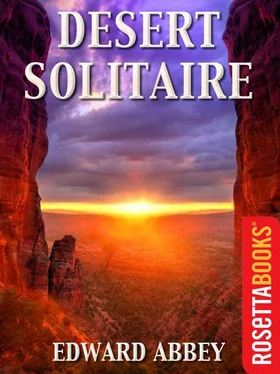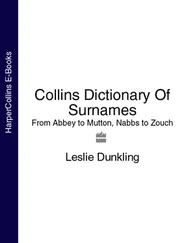Abbey, Edward - Desert Solitaire (Edward Abbey Series )
Здесь есть возможность читать онлайн «Abbey, Edward - Desert Solitaire (Edward Abbey Series )» — ознакомительный отрывок электронной книги совершенно бесплатно, а после прочтения отрывка купить полную версию. В некоторых случаях можно слушать аудио, скачать через торрент в формате fb2 и присутствует краткое содержание. Год выпуска: 2011, Издательство: RosettaBooks, Жанр: Старинная литература, на английском языке. Описание произведения, (предисловие) а так же отзывы посетителей доступны на портале библиотеки ЛибКат.
- Название:Desert Solitaire (Edward Abbey Series )
- Автор:
- Издательство:RosettaBooks
- Жанр:
- Год:2011
- ISBN:нет данных
- Рейтинг книги:4 / 5. Голосов: 1
-
Избранное:Добавить в избранное
- Отзывы:
-
Ваша оценка:
- 80
- 1
- 2
- 3
- 4
- 5
Desert Solitaire (Edward Abbey Series ): краткое содержание, описание и аннотация
Предлагаем к чтению аннотацию, описание, краткое содержание или предисловие (зависит от того, что написал сам автор книги «Desert Solitaire (Edward Abbey Series )»). Если вы не нашли необходимую информацию о книге — напишите в комментариях, мы постараемся отыскать её.
Desert Solitaire (Edward Abbey Series ) — читать онлайн ознакомительный отрывок
Ниже представлен текст книги, разбитый по страницам. Система сохранения места последней прочитанной страницы, позволяет с удобством читать онлайн бесплатно книгу «Desert Solitaire (Edward Abbey Series )», без необходимости каждый раз заново искать на чём Вы остановились. Поставьте закладку, и сможете в любой момент перейти на страницу, на которой закончили чтение.
Интервал:
Закладка:
We’re marching to Zion,
To beautiful beautiful Zion,
We’re marching upward to Zion,
The beautiful city of love.
It does not, after all, sound unpromising. God knows I have little to lose. But… let’s not hurry. What’s the rush?
Fresh snow on Tukuhnikivats and the other high peaks. They gleam like—like alabaster towers—under the noon sun and glow at evening in a soft, subtle shade of rosy pink, like mighty cones of strawberry ice cream. Very attractive. I prefer the desert.
Why? Because—there’s something about the desert. Not much of an answer. There are mountain men, there are men of the sea, and there are desert rats. I am a desert rat. But why? And why, in precisely what way, is the desert more alluring, more baffling, more fascinating than either the mountains or the oceans?
The majority of the world’s great spirits, from Homer to Melville and Conrad, have felt the call of the sea and responded to its power and mystery, its rhythm, antiquity and apparent changelessness. And the mountains, at least since Rousseau (anticipated by Petrarch) and that great expansion of human consciousness called the Romantic Movement, which opened up for men a whole new world of truth, have been explored and celebrated, strenuously if not adequately, by swarms of poets, novelists, scientists and frost-bitten inarticulate (“because it’s there”) mountain climbers. The desert, however, has been relatively neglected.
Not entirely, of course. There was T. E. Lawrence who liked the desert because, as he said, “it is clean,” and another mad Englishman, C. M. Doughty— Travels in Arabia Deserta —who almost never came back. A few Americans have tried to understand the desert: Mary Austin in her book Land of Little Rain , John C. Van Dyke in an unjustly forgotten book The Desert , Joseph Wood Krutch with The Voice of the Desert , the contemporary novelists Paul Bowles and William Eastlake in part of their work (but only in an incidental way), and such obscure figures as the lad Everett Reuss, author of On Desert Trails , who disappeared at the age of twenty-six into the canyon country of southern Utah, never to return. This happened back in the late Thirties; his burros were found, part of his gear, but the young man himself, never. For all we know he is still down in there somewhere, living on prickly pear and wild onions, communing with the gods of river, canyon and cliff. Also deserving of mention, in this mere preliminary sketch of a desert bibliography, are the historical studies by Wallace Stegner— Beyond the 100th Meridian and Mormon Country —and of course the classic Exploration of the Colorado River and Its Canyons by Powell.
None of the works I have named attack directly the problem to which I wish to address myself here: what is the peculiar quality or character of the desert that distinguishes it, in spiritual appeal, from other forms of landscape? In trying to isolate this peculiarity, if it exists at all and is not simply an illusion, we must beware of a danger well known to explorers of both the micro- and the macrocosmic—that of confusing the thing observed with the mind of the observer, of constructing not a picture of external reality but simply a mirror of the thinker. Can this danger be avoided without falling into an opposite but related error, that of separating too deeply the observer and the thing observed, subject and object, and again falsifying our view of the world? There is no way out of these difficulties—you might as well try running Cataract Canyon without hitting a rock. Best to launch forth boldly, with or without life jackets, keep your matches dry and pray for the best.
The restless sea, the towering mountains, the silent desert—what do they have in common? and what are the essential differences? Grandeur, color, spaciousness, the power of the ancient and elemental, that which lies beyond the ability of man to wholly grasp or utilize, these qualities all three share. In each there is the sense of something ultimate, with mountains exemplifying the brute force of natural processes, the sea concealing the richness, complexity and fecundity of life beneath a surface of huge monotony, and the desert—what does the desert say?
The desert says nothing. Completely passive, acted upon but never acting, the desert lies there like the bare skeleton of Being, spare, sparse, austere, utterly worthless, inviting not love but contemplation. In its simplicity and order it suggests the classical, except that the desert is a realm beyond the human and in the classicist view only the human is regarded as significant or even recognized as real.
Despite its clarity and simplicity, however, the desert wears at the same time, paradoxically, a veil of mystery. Motionless and silent it evokes in us an elusive hint of something unknown, unknowable, about to be revealed. Since the desert does not act it seems to be waiting—but waiting for what?
In sailing the ocean we reach the other shore and find, as we should have expected, everything much the same on either side. During the voyage we see only the unvarying expanse of heaving green or gray, and an empty sky, and not very much of either—the horizon at sea is only twelve miles away. In other words the journey is the central thing, the expectation of what is to come; the ocean itself is merely a medium of travel. (Only a trip by air or space is more abstract, more synthetic, from the passenger’s point of view. When and if our astronauts are actually launched off to the moon or Mars through the cold black and white of space they will, I predict, be expertly drugged beforehand—how else could they endure the coffinlike confinement, the static surroundings, of such a venture?) The most appealing part of the sea, in fact, is its meeting with the land; it is the seashore which men love and not the ocean itself. (We are not writing here of the seafarer’s trade, or of the underwater world.)
In climbing a mountain, if we persevere, we reach the summit; we get, you might say, to the point. Once on the mountaintop there is nothing to do but come down again; the weather up there is usually too hostile for delay; the situation is not suitable for reflection and meditation. Descending the mountain we enter by degrees into a friendlier, more comfortable, more human environment—forest, rushing streams, sunny meadows—and soon hear the cowbells, see the villages and roads, all that is familiar and reassuring.
The desert is different. Not so hostile as the snowy peaks, nor so broad and bland as the ocean’s surface, it lies open—given adequate preparation—to leisurely exploration, to extended periods of habitation. Yet it can hardly be called a humane environment; what little human life there is will be clustered about the oases, natural or man-made. The desert waits outside, desolate and still and strange, unfamiliar and often grotesque in its forms and colors, inhabited by rare, furtive creatures of incredible hardiness and cunning, sparingly colonized by weird mutants from the plant kingdom, most of them as spiny, thorny, stunted and twisted as they are tenacious.
There is something about the desert that the human sensibility cannot assimilate, or has not so far been able to assimilate. Perhaps that is why it has scarcely been approached in poetry or fiction, music or painting; every region of the United States except the arid West has produced distinguished artists or has been represented in works of art which have agreed-upon general significance. Only the hacks rush in where genius hesitates to tread, and the baffling reality is lost behind the dust clouds thrown up by herds of Zane Greys and Max Brands, by the anonymous painters of sugar-sweet landscapes and Roman-Indian portraits that clutter up certain galleries, and by those tough old humorous retired cowladies whose memoirs are so lovingly reprinted by the regional university presses— No Life for a Lady, No High Adobe, No Time for Tea, No Sin in the Saddle , etc. Behind the dust, meanwhile, under the vulture-haunted sky, the desert waits—mesa, butte, canyon, reef, sink, escarpment, pinnacle, maze, dry lake, sand dune and barren mountain—untouched by the human mind.
Читать дальшеИнтервал:
Закладка:
Похожие книги на «Desert Solitaire (Edward Abbey Series )»
Представляем Вашему вниманию похожие книги на «Desert Solitaire (Edward Abbey Series )» списком для выбора. Мы отобрали схожую по названию и смыслу литературу в надежде предоставить читателям больше вариантов отыскать новые, интересные, ещё непрочитанные произведения.
Обсуждение, отзывы о книге «Desert Solitaire (Edward Abbey Series )» и просто собственные мнения читателей. Оставьте ваши комментарии, напишите, что Вы думаете о произведении, его смысле или главных героях. Укажите что конкретно понравилось, а что нет, и почему Вы так считаете.












